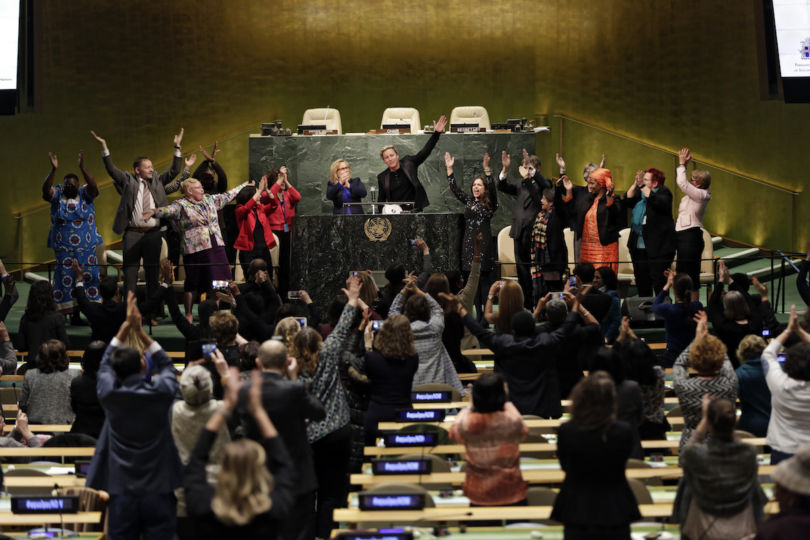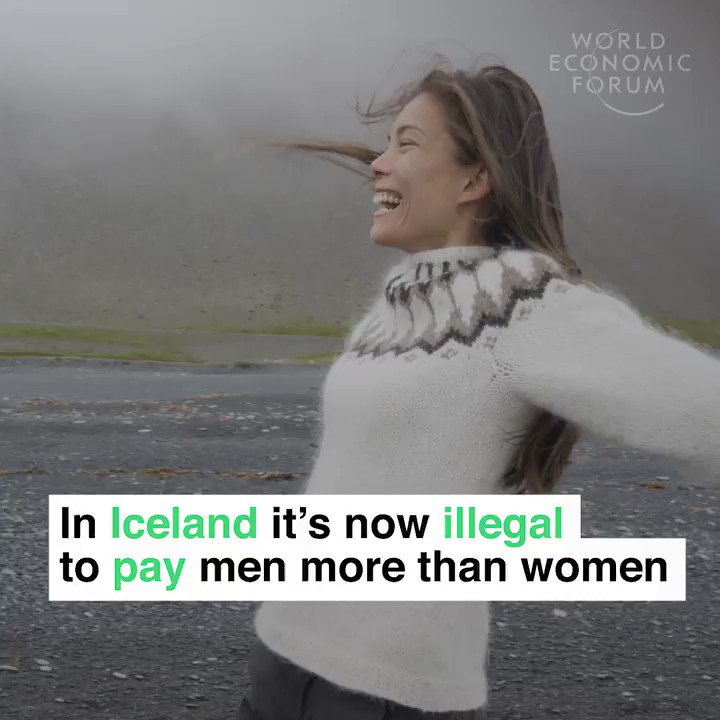Iceland has kick-started 2018 by introducing a law making it illegal to pay men more than women in a bid to close a pay gap that exists in almost every country around the world.
Under these brand new rules, companies and agencies that employ over 25 people will need to obtain a Government certification of their equal-pay policies or face excessive fines.

Champions of equal pay at the UN Women Global Equal Pay Coalition in New York, an event co-sponsored by the Missions of Iceland, South Africa and Switzerland (Photo: UN Women/Ryan Brown via Flickr CC)
The bill, which came into effect on January 1, makes the Nordic island nation the first country in the entire world to outright ban pay discrimination on the basis of gender.
It forms part of government plans to completely eradicate the gender wage gap by 2020.
Dagny Osk Aradottir Pind, a board member of the Icelandic Women’s Rights Association, describes it as a “mechanism to ensure women and men are being paid equally.”
“We have had legislation saying that pay should be equal for men and women for decades now – but we still have a pay gap,” she told Al Jazeera news.
“I think that now people are starting to realise that this is a systematic problem that we have to tackle with new methods,” Pind explains.
“Women have been talking about this for decades and I really feel that we have managed to raise awareness,” she adds:
“We have managed to get to the point that people realise that the legislation we have had in place is not working, and we need to do something more.”
For the last nine years, Iceland has been ranked by the World Economic Forum (WEF) as the most gender-equal country in the world – followed by Norway, Finland, Rwanda and Sweden.
Yemen is the lowest-ranked of the 144 countries in the Global Gender Gap Report, which uses economic opportunity, political empowerment, health and survival to measure inequality.
Source: konbini.com




Comments are closed.